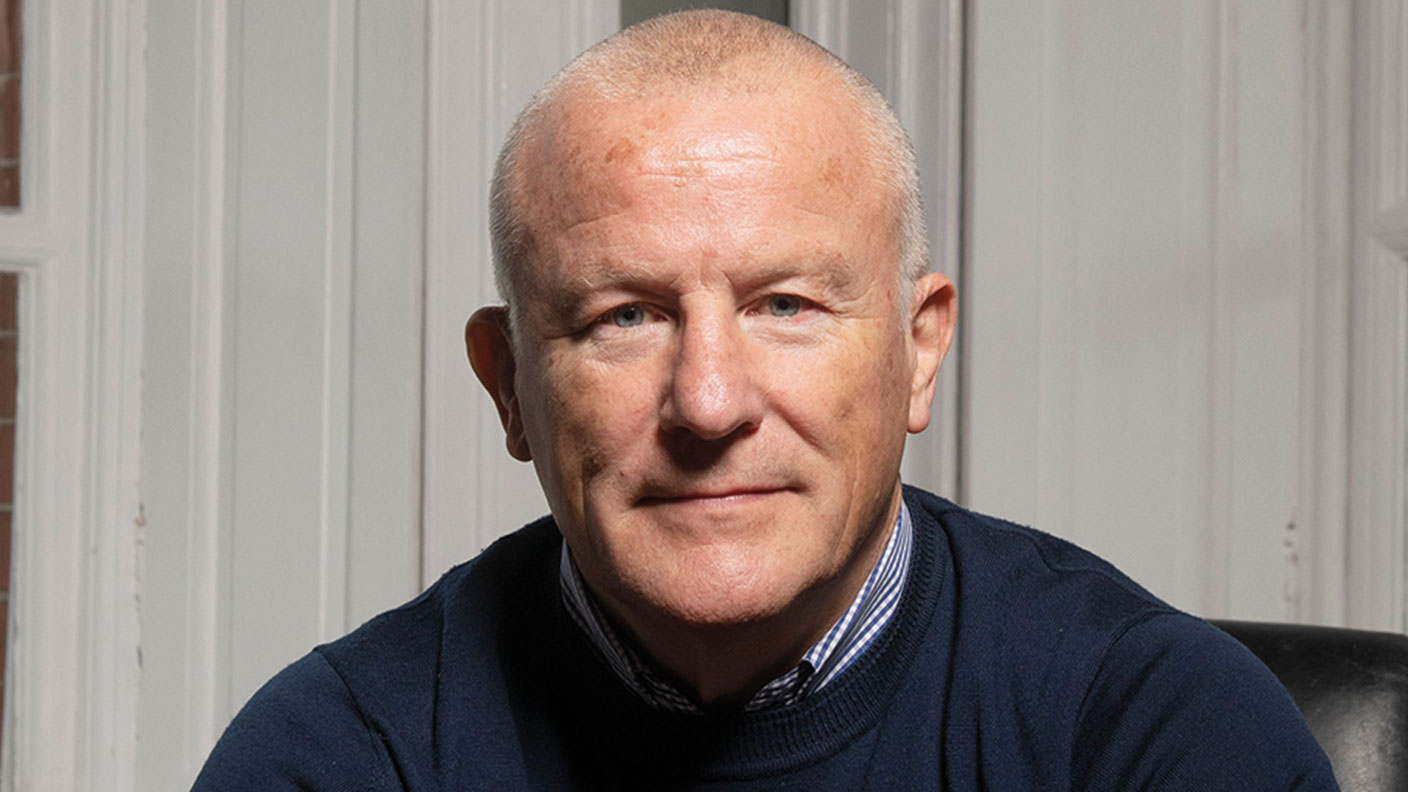Woodford believed his own hype – now his investors are paying the price
Neil Woodford was once one of the brightest stars in Britain’s investment firmament. Then he came crashing down to earth. John Stepek explains what went wrong.

Get the latest financial news, insights and expert analysis from our award-winning MoneyWeek team, to help you understand what really matters when it comes to your finances.
You are now subscribed
Your newsletter sign-up was successful
Want to add more newsletters?

Twice daily
MoneyWeek
Get the latest financial news, insights and expert analysis from our award-winning MoneyWeek team, to help you understand what really matters when it comes to your finances.

Four times a week
Look After My Bills
Sign up to our free money-saving newsletter, filled with the latest news and expert advice to help you find the best tips and deals for managing your bills. Start saving today!

A few short years ago, Neil Woodford was one of the brightest stars in Britain's investment firmament. He built his reputation at investment manager Invesco Perpetual from 1988 to 2014. His big triumphs were to avoid the two big bubbles of the 2000s tech and banking and to buy detested, but hugely undervalued tobacco stocks instead. His main fund, Invesco Perpetual High Income, returned more than 13% a year, trouncing the FTSE All Share's annual average of 9%.
This success made him one of the vanishingly few British fund managers with brand name recognition. So when he upped and left Invesco to set up on his own heavily backed by Britain's biggest broker, Hargreaves Lansdown plenty of private investors went with him.
Woodford's new flagship Equity Income fund was nothing like a traditional income fund. Instead of blue-chip dividend-payers, the fund owned chunky stakes in mid-cap stocks with high yields to provide the income, with the rest made up of small caps and a clutch of unlisted companies or what the uncharitable might describe as hopeful punts on lottery ticket stocks.
MoneyWeek
Subscribe to MoneyWeek today and get your first six magazine issues absolutely FREE

Sign up to Money Morning
Don't miss the latest investment and personal finances news, market analysis, plus money-saving tips with our free twice-daily newsletter
Don't miss the latest investment and personal finances news, market analysis, plus money-saving tips with our free twice-daily newsletter
In the two years after launch in June 2014, the fund beat the FTSE All Share index. By May 2017, its assets under management had peaked at above £10bn. By then, however, the halo was slipping. High-profile profit warnings from holdings such as doorstep lender Provident Financial and motoring group AA battered investor confidence. As the money started to flow out, the fund's exposure to small caps and unlisted equities became a real problem.
Woodford Equity Income was an open-ended fund, so when investors withdrew, assets had to be sold to fund these redemptions and the most liquid were the first to go. As a result, illiquid assets became an ever-bigger percentage of the portfolio, until it was in danger of breaching regulatory limits. And better-informed investors were very aware of this. As a result, the downward spiral exacerbated by Woodford's desperate efforts to make the portfolio look more liquid than it was accelerated, until in June this year, the fund was closed to withdrawals.
What went wrong? In short, Woodford believed his own hype. Rather than stick to betting on long-term trends using big, liquid blue chips, he decided that his genius was transferable to the world of picking winners from among very early stage companies. That was an early red flag for investors swapping investment styles often precedes a fall for a manager. Indeed, even before Woodford struck out on his own, wealth manager St James's Place had commissioned research for its own internal use that found no sign that he had any ability to add value through his investments in early-stage companies.
Meanwhile, cut loose from the compliance structures of a big fund management group, Woodford failed to pay attention to the basics and because he was the man with his name above the door, no one was there to tell him "no". A combination of greed and ego led him to run a fund that was simply too big to invest safely in so many small companies without causing predictable problems when it came to sell.
For the same reasons, the fund was structured in an entirely unsuitable manner. As anyone who owned open-ended commercial property funds in the wake of the 2016 Brexit vote learned to their cost, it is a huge mistake to own illiquid assets in a fund that promises daily liquidity. This is what investment trusts (closed-ended funds) are for. Indeed, while Woodford's Patient Capital Trust has also been a catastrophic investment, those who bought it have at least been able to get their money out as and when they desired.
In all, it's a classic investment tale of hubris meeting nemesis. But don't feel too sorry for Woodford. His reputation might be in tatters, but he is still sitting on the fortune he made. Unfortunately, his investors are unlikely to be so lucky.
First published in The Times
Get the latest financial news, insights and expert analysis from our award-winning MoneyWeek team, to help you understand what really matters when it comes to your finances.

-
 Last chance to invest in VCTs? Here's what you need to know
Last chance to invest in VCTs? Here's what you need to knowInvestors have pumped millions more into Venture Capital Trusts (VCTS) so far this tax year, but time is running out to take advantage of tax perks from them.
-
 ISA quiz: How much do you know about the tax wrapper?
ISA quiz: How much do you know about the tax wrapper?Quiz One of the most efficient ways to keep your savings or investments free from tax is by putting them in an Individual Savings Account (ISA). How much do you know about ISAs?
-
 Neil Woodford’s back – but has he really learned anything?
Neil Woodford’s back – but has he really learned anything?Opinion Disgraced fund manager Neil Woodford is planning a comeback. But he doesn’t seem to have learned much from his many mistakes. So why would anyone invest with him now?
-
 Neil Woodford’s back – but sometimes sorry isn’t enough
Neil Woodford’s back – but sometimes sorry isn’t enoughAdvice Neil Woodford’s funds blew up in 2019. Now he is on the comeback trail. But his apologies are unconvincing.
-
 Woodford investor? Your first payment is coming soon
Woodford investor? Your first payment is coming soonNews Private investors left stranded by the collapse of the Woodford Equity Income fund will soon be getting at least some of their money back. But they will have to wait a while longer to see how much more – if any – they will receive.
-
 Neil Woodford continues to cast a shadow over his successor at Invesco
Neil Woodford continues to cast a shadow over his successor at InvescoFeatures Mark Barnett, former star manager Neil Woodford’s successor at Invesco, has applied the same formula, and is struggling.
-
 Neil Woodford: no silver lining for his investors
Neil Woodford: no silver lining for his investorsEditor's letter Neil Woodford made every mistake it is possible to make as a money manager. And his investors have been stiffed. But however wrong it all went, Woodford never stopped taking the fees.
-
 Woodford’s empire collapses – what happens to his investors now?
Woodford’s empire collapses – what happens to his investors now?Features With Neil Woodford getting his marching orders and his funds being shut down, John Stepek explains what it means for his former empire, and for those with money locked in.
-
 The fall of the house of Woodford – and what it means for your money
The fall of the house of Woodford – and what it means for your moneyFeatures Neil Woodford has been fired from his Equity Income fund, which is now being wound up. John Stepek looks at how he got into this mess, and what it means for investors.
-
 Don’t be patient with the Woodford Patient Capital Trust
Don’t be patient with the Woodford Patient Capital TrustFeatures The Woodford Patient Capital investment trust continues to remain in limbo. Don’t bet on a turnaround anytime soon.